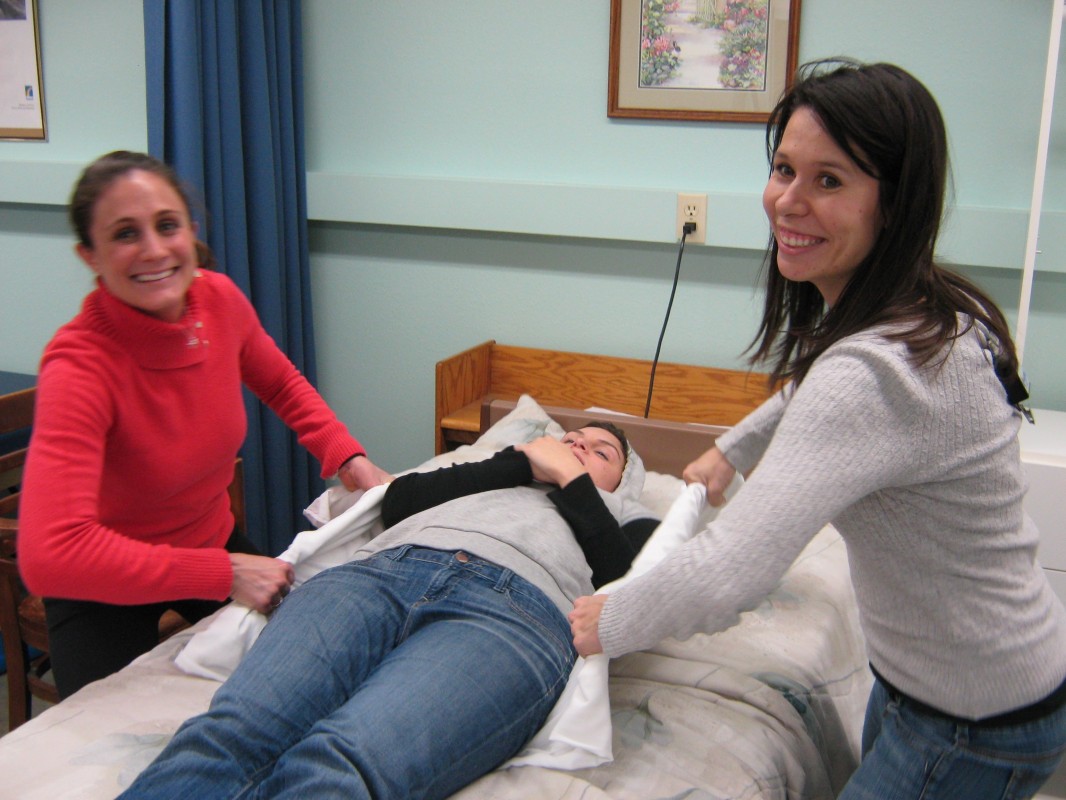
Students enrolled in the University of Puget Sound’s School of Occupational Therapy are expected to demonstrate essential functions in five areas of performance abilities: observation, communication, motor, intellectual, and social/affective. These abilities enable students to perform tasks necessary to meet graduation and professional standards as required by the Accreditation Council for Occupational Therapy Education (ACOTE), certification by the National Board for Certification in Occupational Therapy, and state licensure processes. Reasonable accommodations will be implemented on an individual basis for students with documented disabilities. Given the reasonable accommodation, students must be able to demonstrate the essential functions. Students who’s ability to meet the essential functions change during the academic program are responsible for discussing this change with the program director.
Essential Functions
OT students must demonstrate the following essential functions with or without reasonable accommodations:
Observation: Students must have sufficient sensory capacity to observe in classroom, health care, educational, and community settings. Sensory abilities, including functional vision, hearing and tactile sensation, must be adequate to perform appropriate examinations or assessments needed to ascertain a client’s condition and to elicit information appropriate to the particular setting.
Communication: Students must communicate effectively and professionally in academic, health care, educational, and community settings. Students must also demonstrate proficiency in both oral and written English and in non-verbal communication.
Motor: Students must have the ability to participate in basic diagnostic and therapeutic maneuvers and procedures. Motor function must be sufficient to fully execute movements required to provide client care, which may include dependent transfer of an individual, physical examination techniques, preparation of equipment and supplies, and conducting medical procedures. Students must be able to navigate in client care environments and be able to move in settings such as the classroom, a health care facility, educational, or the community.
Physical stamina sufficient to complete the rigorous course of didactic and clinical study is required. Long periods of sitting, standing, or activity are often required. Students must be able to tolerate up to 8 hours of physical activity with a range of energy demands from light to heavy activities with occasional rest breaks.
Intellectual: Students must be able to demonstrate critical thinking skills throughout the academic and experiential portions of the OT program. This includes the ability to measure, calculate, reason, analyze, and integrate information. Students must retain and recall this information and demonstrate good judgment when transitioning from academic to experiential learning.
Social/Affective: Students must exercise good judgement and be able to function, appropriately and effectively, in the face of uncertainties inherent in professional practice. They must maintain mature, sensitive, and effective professional relationships with faculty, students, clients, and other members of the health care and educational teams. Student professional behaviors are regularly evaluated by faculty. Areas addressed are:
- Respect/Compassion
- Safety Awareness – including managing equipment and materials
- Appropriate responsibility for learning
- Self-awareness
- Respects Authority
- Initiates/Cooperates/Prioritizes
- Flexible/Problem Solving
- Emotional Maturity
- Stress Management
- Time Management
- Responds to Feedback
- Gives constructive feedback
- Nonverbal Communication
- Oral Communication
- Written Communication
- Policies/Procedures
- Academic Honesty/Ethic Code
Procedure
- Following admission to the School of Occupational Therapy at University of Puget Sound and within the first two weeks of the beginning semester, all students must sign an acknowledgment that they have read and understand the Essential Functions document.
- Students with a concern about performing any of these functions should meet with their academic advisor and the program director.
- Students who require reasonable accommodations for the didactic or the clinical component of the program, must contact the Office of Student Accommodation and Accessibility and follow the procedures outlined on the University website before any accommodations can be made. Essential functions can be successfully met by students who have documented disabilities and who have requested and are receiving reasonable accommodations.
- Due to the time required to properly evaluate students’ needs and implement reasonable accommodations, it is recommended that students request accommodations as early as possible, preferably the summer before the start of the program.